Renal Diet Basics
You're determined to boost your kidney health, aren't you? Managing your diet plays a crucial part when you are dealing with Chronic Kidney Disease.
A well-designed kidney-friendly menu isn't just possible, it's a delicious reality. This article will guide you through the process, unraveling nutritional requirements and helping you navigate meal planning challenges.
Ready to make choices that cherish your kidneys? Let's dive into the art of crafting a beneficial kidney diet menu together!
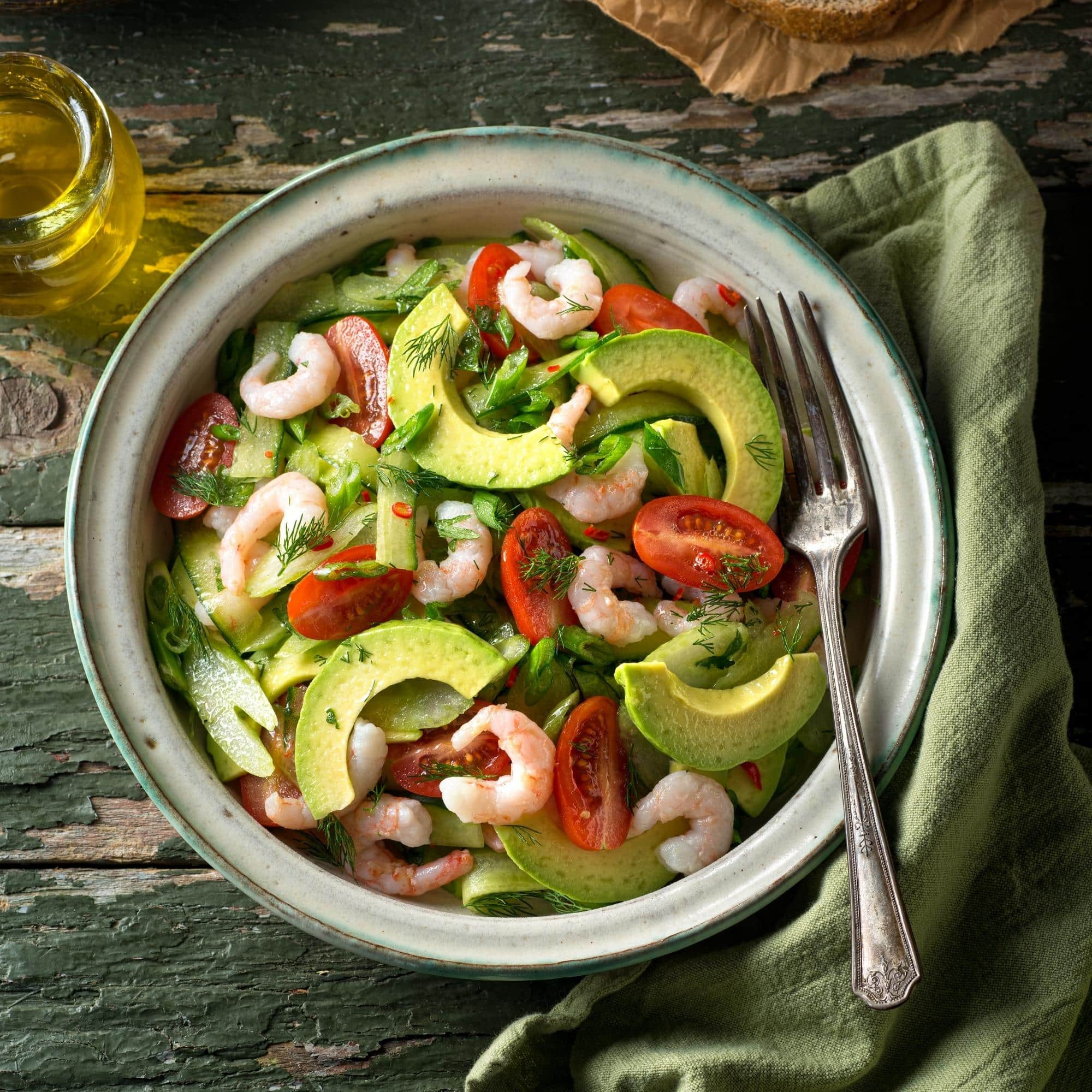
Jump to:
- Key Takeaways
- Understanding the Role of Diet in Kidney Health
- Steps to Design a Kidney Diet Menu
- Essential Guidelines for a Kidney Diet Menu
- Decoding the Nutritional Requirements for Kidney Patients
- The Art of Meal Planning for Kidney Patients
- Balancing Protein Intake in a Kidney Diet
- The Importance of Iron in a Kidney Diet
- Fluid Restrictions: Choices and Challenges
- The Role of Fruits in a Kidney Diet
- Long-Term Benefits of a Kidney-Safe Diet
- FAQs About a Kidney Diet Menu
- A Kidney Diet Menu Worth Trying Out
Key Takeaways
- Diet plays a crucial role in maintaining kidney health.
- Consuming kidney-friendly snacks, like fresh fruits and vegetables, helps maintain kidney function.
- Making dietary adjustments, like reducing consumption of processed foods high in additives, helps control phosphorus intake.
- Consulting with a registered dietitian is vital for designing a kidney-friendly diet menu for people with kidney disease.
For More Recipes and Ideas --->> Get Your Free Meals and Recipes That Are Perfect for Pre-Dialysis Diets, Pre-Dialysis with Diabetes, or Dialysis Diets.
Understanding the Role of Diet in Kidney Health
As you start understanding kidney health, no matter what stage of kidney disease you're at, it's crucial to acknowledge the significant role your diet plays in maintaining or potentially damaging these vital organs.
We'll be examining this relationship closely, with an emphasis on the impact of specific dietary components and the importance of balanced, controlled nutrition for overall kidney health.
Diets Impact on Kidneys
You're probably unaware of how significantly your diet can impact the health of your kidneys. Consuming kidney-friendly snacks, like fresh fruits and vegetables, helps maintain these organs' function. Herbal support supplements are beneficial too, nevertheless, always consult a healthcare professional before use.
Avoiding high-sodium foods is crucial as excessive sodium puts strain on the kidneys. Incorporating exercise into your routine also has a positive impact, it aids in controlling blood pressure and maintaining overall kidney health. Reading food labels for the amount of sodium is a great skill to have.
These lifestyle changes aren't drastic but can make a world of difference in preserving kidney function. Supporting others to understand this vital connection between diet and kidney health paves the way for healthier communities in the long run.
If you have any questions about finding a healthy diet that's right for you, speak to your health care provider.
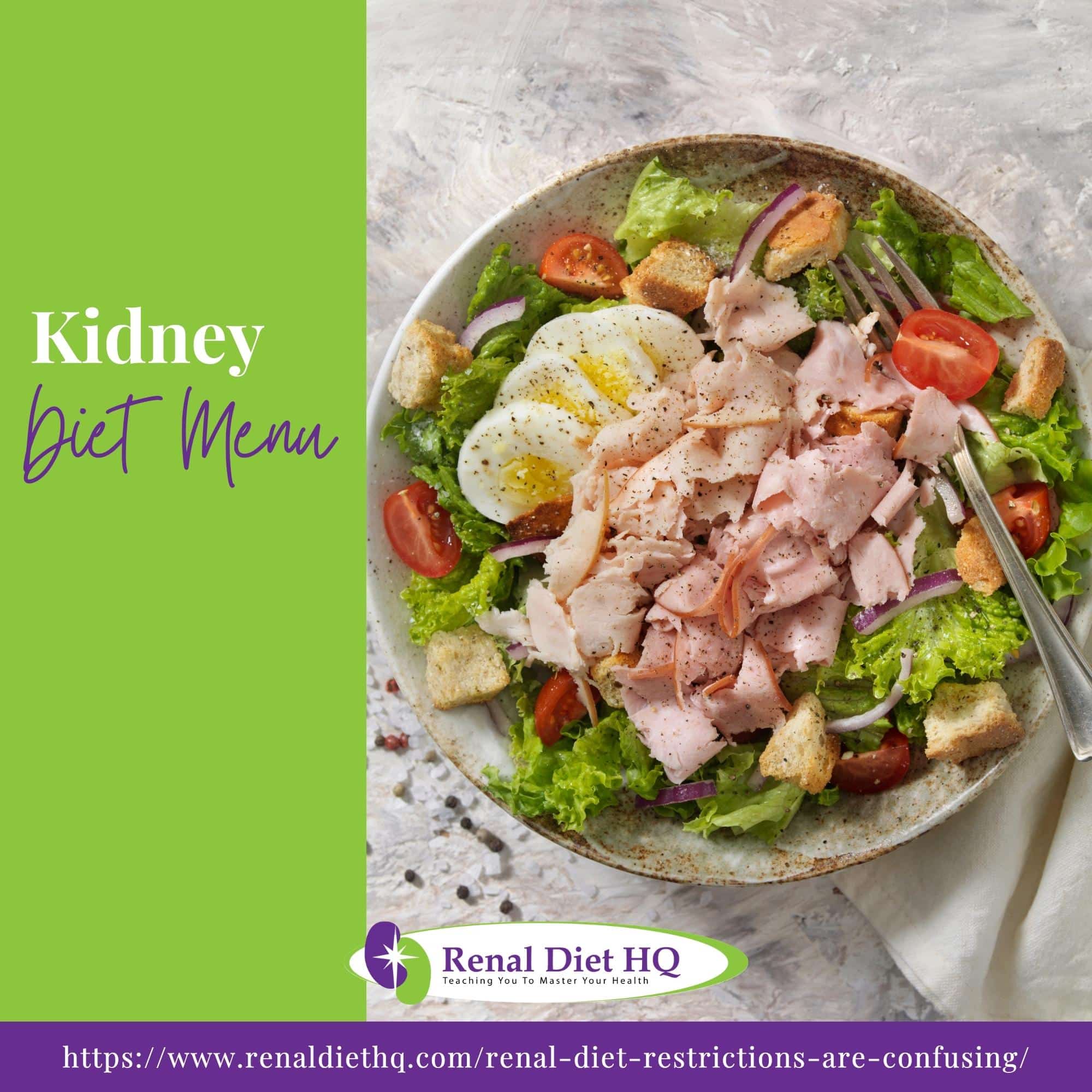
Importance of Nutrient Control
It's essential to control nutrient intake because it directly affects overall health, not just our organs' functionality. Effective phosphorus regulation is crucial for kidney function. You can achieve this by making dietary adjustments, like reducing consumption of processed foods high in additives.
Understanding vitamin importance is another key aspect. Vitamins A and C, for instance, aid in cellular repair and immune system strength respectively, both vital for kidney health.
Nutrient absorption also plays a significant role. Consuming adequate dietary fiber ensures smoother digestion and helps prevent constipation, a common issue in individuals with compromised kidneys.
Steps to Design a Kidney Diet Menu
As you dig deeper into the process of designing a kidney-friendly diet menu, it's vital to consult with a registered dietitian. They'll equip you with the necessary tools and knowledge needed to balance nutrients effectively in your regimen, which is paramount for maintaining optimum kidney health.
This discussion will explore how these professionals can guide you in crafting a tailored dietary plan that meets your unique needs, focusing on nutrient balance and overall well-being.
Consulting A Dietitian for Menu Planning
As you start on a kidney diet, you'll need to consult a dietitian to help create a suitable menu for your specific needs. They can provide dietary supplements advice and suggest lifestyle modifications that can positively impact your health. Regular exercise is crucial for kidney health and managing hypertension dietarily is equally important.
Your dietitian will also introduce low sodium cooking techniques which are imperative in maintaining good kidney health. You'll be educated about the types of food to consume and those to avoid. In your journey to healthy kidneys, you'll learn about things like the importance of the levels of potassium, low-fat dairy products, excess fluid, and heart-healthy foods.
The following table provides an overview for dietary approaches:
| Consultation Area | Importance | Impact |
|---|---|---|
| Dietary Supplements Advice | Helps maintain nutritional balance | Improves overall well-being |
| Lifestyle Modifications Impact & Exercise | Enhances physical fitness, kidney function | Manages weight, reduces hypertension risks |
| Low Sodium Cooking Techniques | Reduces sodium intake | Preserves kidney function |
Balancing Nutrients in Diet
You've got to balance nutrients in your meals to help maintain overall health. Nutrient timing is key, and consuming foods at the right time can optimize nutrient absorption. For instance, you've got to monitor sodium regulation closely, as excessive sodium intake can be detrimental to kidney health.
Dietary supplements may seem like a quick fix, but they're not always the best solution. It's better to get nutrients from whole foods whenever possible. Looking at the sodium content in foods, and sticking to 2000 milligrams of sodium or less per day will be healthiest for you.
Don't underestimate the importance of fiber consumption for digestive health and maintaining a healthy weight. A well-rounded diet is crucial for optimal health and wellbeing.
Essential Guidelines for a Kidney Diet Menu
Looking into the essential guidelines for a kidney diet menu, it's crucial to understand the significance of balancing nutrients and managing your fluid intake, particularly if you're on dialysis.
You'll need to master how to strike a balance between proteins, carbohydrates, fats, and other micronutrients in your meals to ensure optimal kidney health.
Moreover, having comprehensive knowledge about dialysis diet fluid restrictions is paramount as too much fluid can lead to complications, such as high blood pressure or heart disease.
Balancing Nutrients in Menus
It's essential to ensure your kidney diet menu has a balanced mix of nutrients. Nutrient timing is vital, meaning you should plan when and what to eat for optimal health benefits.
Dietary supplements can fill any nutrient gaps, but they're not substitutes for whole foods. Include kidney-friendly snacks like apples or cucumbers which are low in sodium and phosphorus.
Phosphorus control is another critical aspect of your kidney diet menu because high levels can cause bone disease. Sodium limitation is equally important to prevent fluid buildup and high blood pressure.
It's advisable to limit processed foods that often contain hidden salts. But be cautious of salt substitutes, as they can contain potassium chloride which can be harmful on a renal diet.
Decoding the Nutritional Requirements for Kidney Patients
In managing your kidney health, understanding the nutritional requirements is crucial.
You'll need to balance various nutrients in your diet, with special attention to protein and potassium management.
Research shows that effective control of these elements can significantly improve your kidney function and overall health, and we're going to delve into this topic further.
Balancing Nutrients in Diet
Balancing nutrients in a kidney diet menu isn't just about cutting back on certain foods, but also about including the right ones. These can fill nutritional gaps and aid overall health. Dietary fiber and omega 3 fatty acids are both beneficial for heart health. Fiber also aids digestion while omega 3's reduce inflammation.
Phosphorus control and sodium reduction are equally vital. High phosphorus levels can damage kidneys further, so opt for low-phosphorus foods. Over-consumption of sodium elevates blood pressure, not ideal for kidney patients.
You're not merely helping with a diet, you're providing care that enhances life quality. Remember, the right balance of nutrients is key in managing kidney health effectively.
Protein and Potassium Management
It's crucial to keep an eye on protein and potassium intake when considering overall health. You can easily achieve this through Protein-rich Vegetables, Non-dairy Protein sources, and Protein Alternatives. Monitoring Potassium Levels is also vital, especially with the availability of Low Potassium Snacks.
Here are some foods in these categories:
| Protein rich Vegetables | Non dairy Protein | Low Potassium Snacks |
|---|---|---|
| Spinach | Quinoa | Apple |
| Mushrooms | Chickpeas | Blueberries |
| Broccoli | Lentils | Rice Cakes |
| Brussels Sprouts | Hemp Seeds | Popcorn |
| Peas | Tofu | Pita Bread |
Incorporating these into your diet helps manage protein and potassium effectively ensuring a balanced diet for improved health. Remember, it's not only about serving yourself but also promoting wellness within your community.
The Art of Meal Planning for Kidney Patients
In your journey to maintain optimal renal health, engaging a dietitian's expertise becomes pivotal. They're equipped with knowledge and experience that can aid you in balancing your nutrient intake effectively.
This is crucial because evidence-based research affirms the significant impact of well-balanced nutrition on kidney patients' overall health and quality of life. A kidney disease meal plan can help be set in place by a 7-day meal plan.
Engaging A Dietitian's Expertise
Consulting a dietitian about your daily diet and dietary intake can significantly improve your kidney health, as they're well-versed in creating personalized diet plans. Armed with top-tier qualifications, a dietitian crafts plans addressing dietary adherence challenges you may face. They'll consider factors like your lifestyle, preferences, and medical history.
Their role extends beyond meal planning:
- Dietitians advise on the role of supplements in supporting kidney health.
- A strong patient-dietitian relationship fosters mutual understanding and trust.
- They provide ongoing support to help you navigate dietary changes.
Remember, maintaining kidney health isn't solely about what you eat. It's also about staying committed to the changes recommended by professionals who care about your wellbeing.
Balancing Nutrients Intake
You'll find balancing your key nutrients intake to be a crucial part of maintaining good health, especially when guided by a dietitian. Nutrient absorption is key here. By studying your dietary limitations, a dietitian can help you maximize the nutrients you absorb from food while minimizing those that could harm you.
Sodium regulation becomes vital, excess sodium can lead to fluid retention and high blood pressure. Understanding these dynamics empowers you to serve others better by sharing knowledge and promoting healthy choices.
Remember, attaining this delicate nutritional balance is possible with professional guidance, while considering the intake of nutrients.
Balancing Protein Intake in a Kidney Diet
Navigating your way through the complexities of a kidney diet can seem daunting, but understanding your protein sources and daily regulations is key.
You'll find that it's not just about limiting your intake, it's about balance and selecting appropriate sources to fit into your meal plan.
We'll look into scientific evidence on optimal protein sources for a kidney diet and provide clear guidance on regulating your daily protein quantity to better manage kidney health.
Protein Sources for Kidney Diet
It's vital to choose the right types of protein sources when tailoring a kidney diet menu. You must consider vegetarian proteins, seafood selection, and strategies for reducing meat intake.
- Vegetarian Proteins: Foods like lentils, chickpeas, and tofu offer high-quality protein without the excess phosphorus found in meats.
- Seafood Selection: Opting for fish like salmon or mackerel can provide essential omega-3 fatty acids and lean protein that is kidney-friendly.
- Reducing Meat: Lower your meat consumption by exploring soy benefits and using it as a substitute where possible.
Remember to incorporate dairy alternatives such as almond milk or rice milk into your diet. These products usually contain less potassium than their dairy counterparts, making them better suited for a kidney diet plan.
Stay vigilant about maintaining balance in your menu choices!
Regulating Protein Quantity Daily
Having explored high protein foods, let's now delve into regulating your daily protein intake. Understanding the protein digestion process is key to balance its biological function and metabolic breakdown.
While proteins are essential for tissue repair and muscle development, too much can lead to negative side effects like kidney damage. Eating excessive amounts of high-protein foods may overwork your kidneys during metabolic breakdown, thereby exacerbating existing conditions. Various studies indicate that a diet rich in proteins can accelerate kidney dysfunction in individuals with kidney disease.
So, it's vital you moderate your consumption based on dietary recommendations specific to your health status. This not only helps in maintaining optimal body function but also reduces potential risks associated with overconsumption of protein.
Serving others begins by taking care of yourself first, regulating wisely!
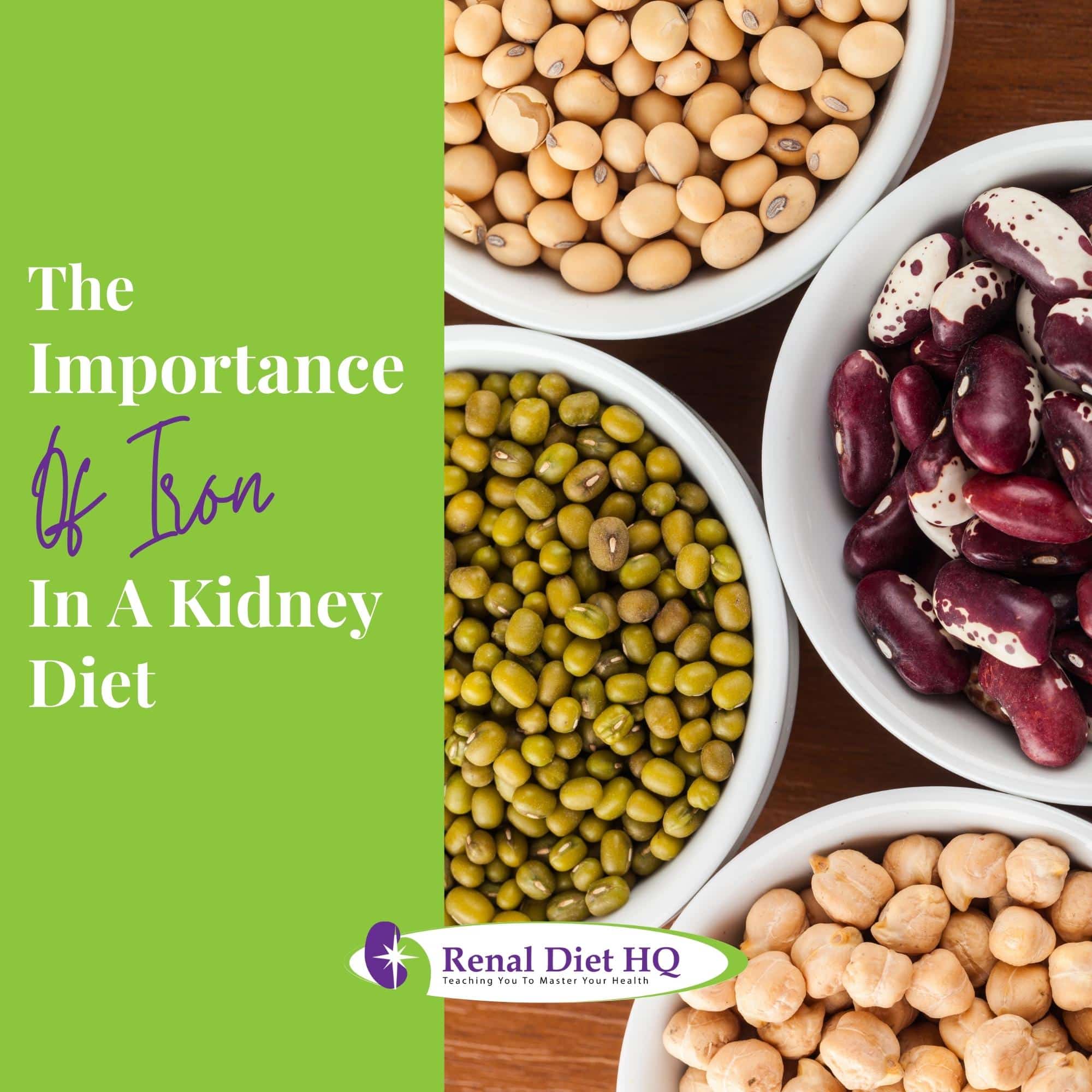
The Importance of Iron in a Kidney Diet
You're about to delve into an important aspect of your kidney health: the role of iron in your diet. Iron deficiency can lead to anemia, a common issue for individuals with kidney disease, making it vital for you to be aware of and actively manage your iron levels.
We'll explore various sources of iron suitable for a kidney-friendly diet and discuss strategies to prevent or manage iron deficiency, all based on solid scientific evidence.
Iron Deficiency and Anemia
On a kidney diet, it's important to monitor your iron levels closely as they can often drop, leading to anemia. Maintaining appropriate hemoglobin levels is crucial in preventing this condition.
Contrary to popular belief, it's not only iron supplements that can aid in anemia prevention; there are natural ways too. Incorporating iron-rich foods into your diet like lean meats and leafy greens can significantly boost your iron levels. Improving iron absorption by consuming vitamin C rich fruits alongside meals is beneficial.
Regular exercise, while ensuring adequate rest periods, also helps stimulate healthy red blood cell production.
Iron Sources for Kidneys
After discussing iron deficiency and anemia, let's now focus on iron sources beneficial for kidney health. There are multiple ways to enhance your iron intake.
First, consider incorporating iron absorption enhancers into your meals. Foods rich in Vitamin C can boost the body's ability to absorb iron effectively.
Next, you might want to try some iron-rich recipes. Opting for vegan iron sources like lentils, tofu, and quinoa is not only healthy but also kinder to your kidneys.
Iron supplementation safety should always be a priority. Consult with a healthcare professional before starting any supplement regimen.
Lastly, don't forget about snacks! Iron-rich snacks such as pumpkin seeds or dried fruits can help keep your iron levels steady throughout the day.
Always remember that serving others starts by serving yourself well first.
Fluid Restrictions: Choices and Challenges
Navigating through fluid restrictions can be a challenging aspect of your kidney diet, but understanding these limitations is crucial for optimal health. It's not just about cutting down on drinks; you'll also need to consider high-fluid foods and find suitable alternatives.
In this discussion, we will delve into the evidence-based strategies that can help you manage your fluid intake while still enjoying a varied and satisfying diet.
Understanding Fluid Limitations
It's crucial to understand fluid limitations when creating a kidney diet menu. Managing water intake is pivotal for maintaining hydration balance and avoiding both dehydration risks and fluid retention dangers. Your role in this process involves diligent monitoring of the client's water consumption, while also accounting for salt's influence on fluids.
Consider these key points:
- Monitor daily water intake carefully to prevent dehydration or overhydration.
- Understand the role of salt in promoting fluid retention; reduce its use in meals whenever possible.
- Advocate for a balanced approach that prioritizes the client's overall health without compromising their comfort or taste preferences.
Alternatives to High-Fluid Foods
Substituting high-fluid foods with other options can be a useful strategy in managing fluid intake.
Low sodium snacks, such as raw vegetables or unsalted nuts, are excellent alternatives that provide essential nutrients without contributing to fluid overload.
Herbal tea benefits include its ability to satisfy thirst while imparting minimal sodium and caffeine.
As hydration substitutes, consider high fiber options like whole grains or legumes, which help maintain water balance without increasing your fluid load significantly.
Dairy alternatives also play a crucial role in this strategy. Almond milk or coconut milk can replace traditional dairy products, offering lower levels of phosphorus and potassium, elements often restricted in kidney diet menus.
The Role of Fruits in a Kidney Diet
As you navigate your kidney diet, selecting fresh foods and fruits that are low in potassium is critical. You'll find it's not only about what to add, but also what to avoid, particularly fruits high in potassium which can potentially exacerbate kidney issues.
With solid research and a focus on details, we'll explore how you can make informed choices for a healthier diet that supports your kidney health.
Choosing Low-Potassium Fruits
You'll find that apples, berries, and peaches are wonderful choices when you're looking to incorporate low-potassium fruits into your kidney diet menu. These fruit selections provide numerous health benefits while also aiding in dietary adjustments necessary for a kidney-friendly lifestyle.
Consider the following:
- The potassium content in these fruits is significantly lower than other options, reducing strain on kidneys.
- Incorporating these fruits into recipes can introduce variety and enjoyment back into meal times.
- Regular consumption of such fruits may contribute to overall health improvement.
Remember, it's not just about cutting out high-potassium foods; it's about creating balance. By making mindful decisions about the types of fruit you eat, you're taking an active role in supporting your kidney health.
Fruit-based recipes with careful selection pave the way for a flavorful yet healthy journey! Using kidney-friendly ingredients to make various light vanilla yogurt and greek yogurt concoctions.
Long-Term Benefits of a Kidney-Safe Diet
As you dig deeper into the long-term benefits of a kidney-safe diet, it's important to focus on two key aspects.
Firstly, slowing the progression of kidney disease. Research has shown that modifying your dietary habits can have a profound impact on the advancement of renal ailments, effectively slowing down the disease.
Secondly, preventing mineral buildup. Maintaining a well-balanced diet also aids in limiting excess mineral accumulation which could otherwise lead to serious health complications such as kidney stones or cardiovascular issues.
These two aspects highlight the importance of adopting a kidney-safe diet.
Slowing Kidney Disease Progression
It's essential to understand that adhering to a kidney-friendly diet can help slow the progression of kidney disease. By incorporating exercise benefits, understanding medication impacts, managing stress effectively, prioritizing sleep importance, and considering herbal supplements, you're not only focusing on diet but a holistic approach to health.
- Exercise Benefits: Regular physical activity helps control blood pressure and cholesterol levels, which can reduce your risk for kidney disease.
- Medication Impacts: Some medications can harm your kidneys if taken in large amounts over time. Always consult with a healthcare professional before starting any new medication.
- Stress Management: Chronic stress can cause numerous health issues, including high blood pressure, which strains the kidneys.
Preventing Mineral Buildup
Preventing mineral buildup is crucial, as it's one of the key factors in maintaining overall health and well-being. You have to monitor your mineral sources closely, making sure they're balanced and not excessive. This involves both choosing the right foods and employing proper cooking techniques that limit additional mineral intake as you plan for kidney disease.
Mineral avoidance doesn't mean cutting out essential nutrients entirely; rather, it requires an awareness of which ones can lead to accumulation if over-consumed. Healthy hydration plays a significant role too. Consuming adequate amounts of water helps flush out excess minerals from your body effectively.
Lastly, lifestyle modifications such as regular exercise can aid in preventing any undue buildup. Remember, moderation is key when addressing minerals in your diet, it's about balance, not deprivation.
FAQs About a Kidney Diet Menu
Managing cravings for non-recommended foods can be challenging. You can employ strategies such as craving control, mindful snacking, and behavior modification.
It's all about substituting with kidney-friendly alternatives that satisfy your taste buds. Emotional eating can sometimes drive these cravings, so recognizing and addressing those feelings is key.
Whether you're craving plain peanut butter, cherry tomatoes, or Greek yogurt, there is always something out there that you can enjoy that's on plan! Proper nutrition is so important.
When attending social events or eating out, it's essential to strategize. Choose restaurants wisely, considering their menu options and how they align with your needs.
Plan meals ahead of time and communicate dietary requirements to your hosts or restaurant staff. Be mindful of alcohol intake as it can affect your diet balance.
Preparation before the event can help you stick to a healthful plan while still enjoying a diverse culinary experience.
A Kidney Diet Menu Worth Trying Out
It's clear that your diet plays a critical role in maintaining kidney health. By understanding the nutritional needs, planning meals accordingly, and making informed food choices, you can manage kidney disease effectively.
Keep in mind, iron is essential and fluid intake requires careful attention. Including fruits offers numerous benefits too.
Remember, a kidney-friendly diet isn't just about immediate relief, it's about long-term health benefits as well.


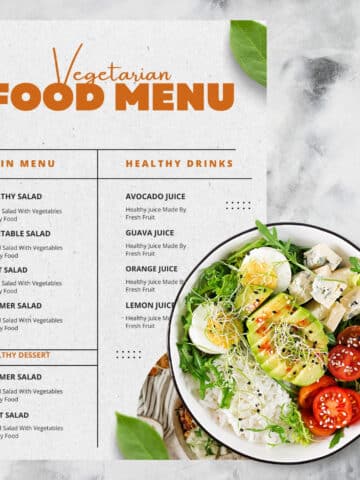
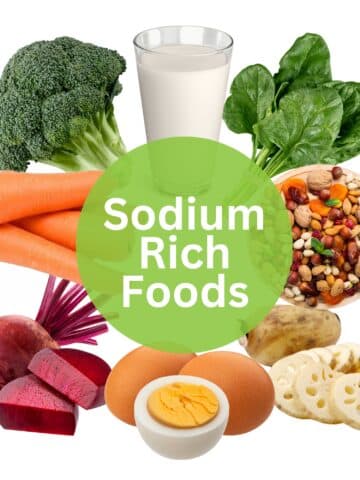
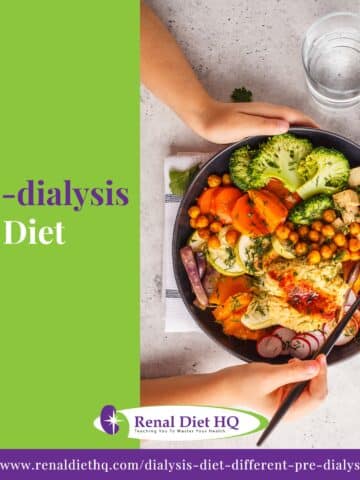
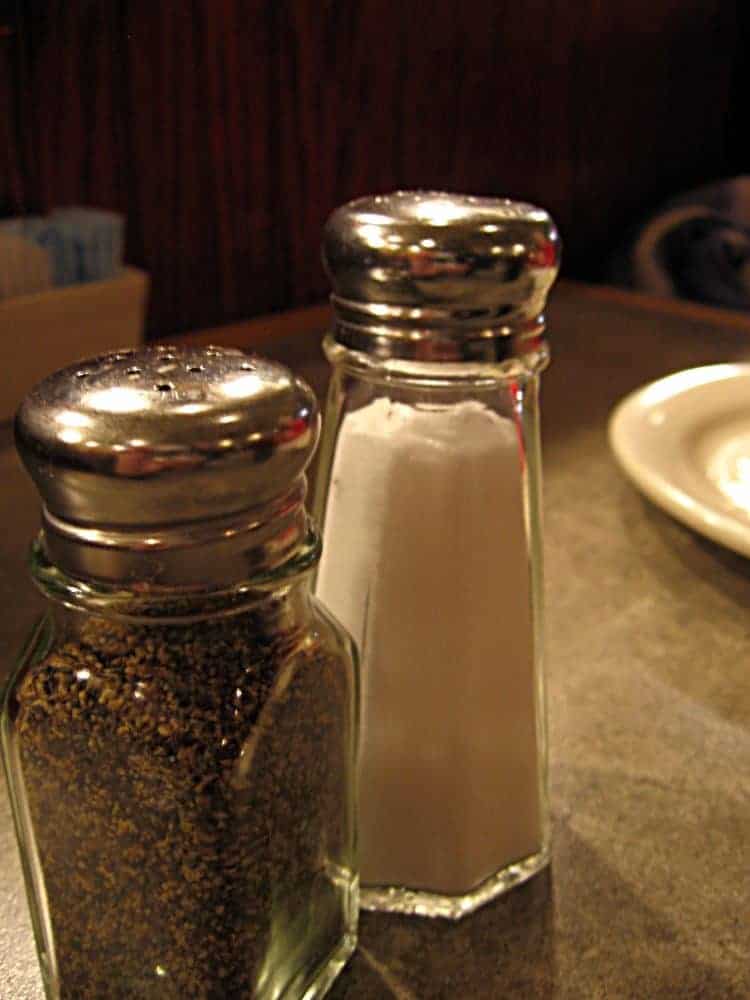
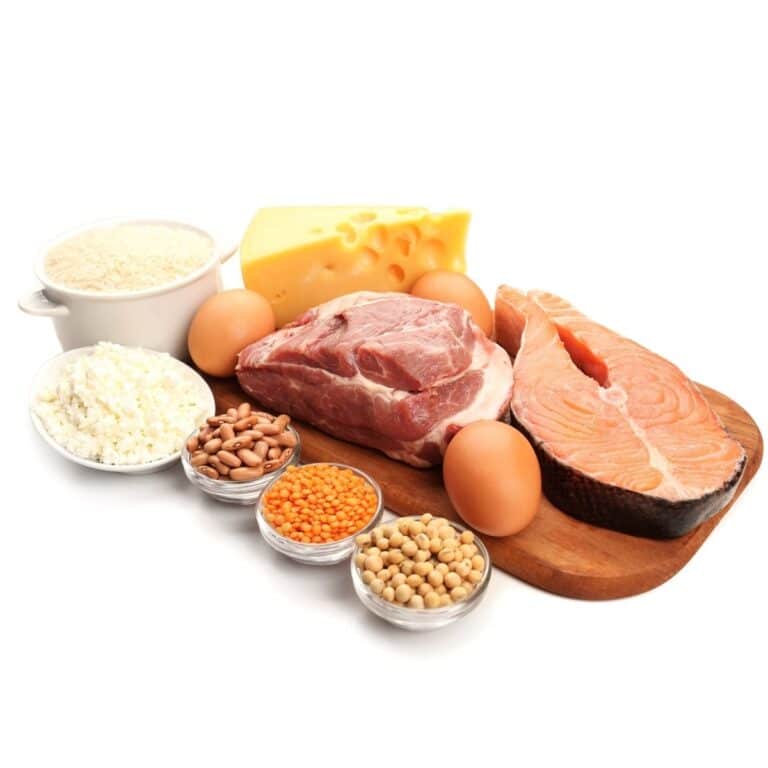

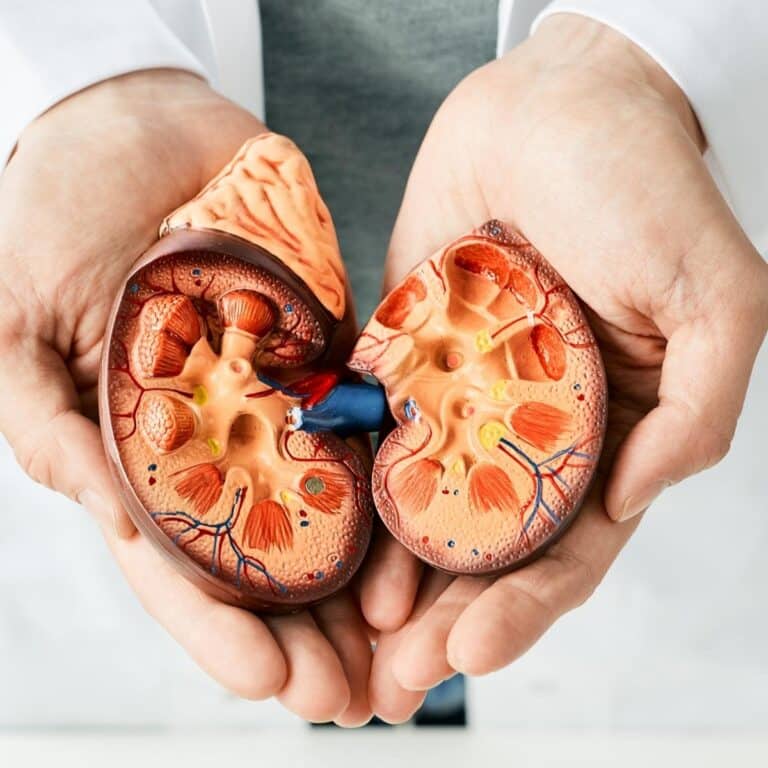
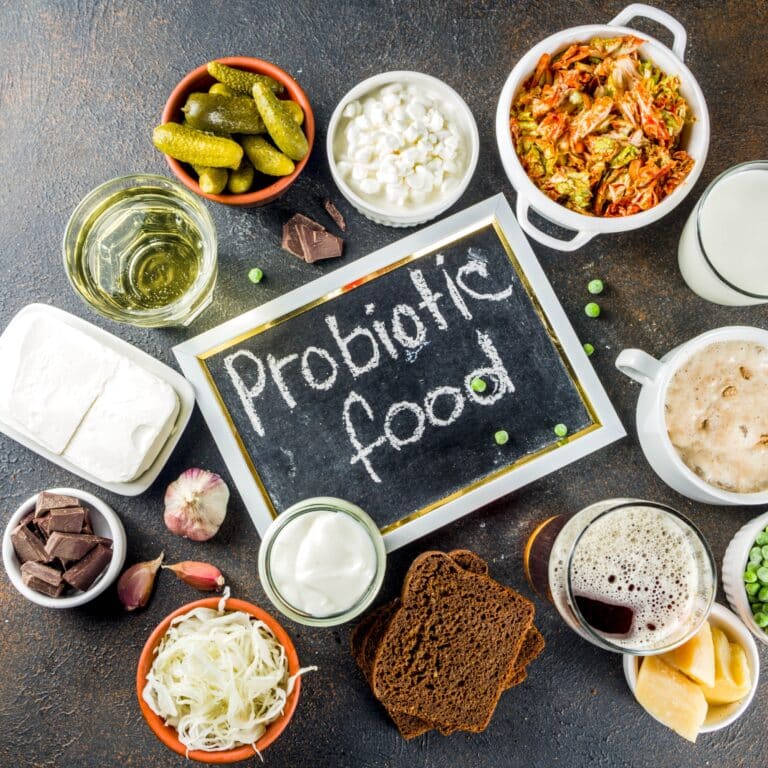



I can't tell you how much help your blog has been. Information is what it is all about. I have your book "Create Your Own Diet Plan" and hope to have the attention span and time to get it into action. I'm looking forward to your cookbook. Mary
Thanks, Mary. I look forward to continuing to add to this blog and the members area for you.